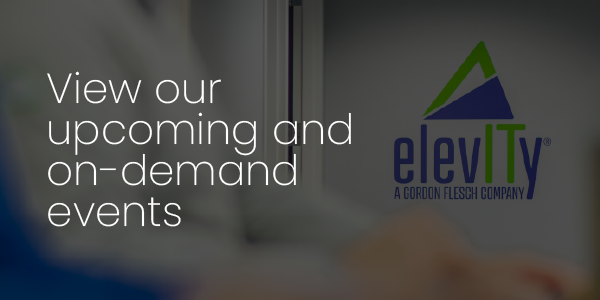We’re not here to give anyone relationship advice. But when it comes to your IT help desk, we’ve seen lots of businesses outgrow their outsourced IT support. If you’re frustrated with your IT help desk or wondering if they can meet your needs, it might be time to consider a breakup.
There is no one reason why an IT help desk and a customer can have a falling out. If your support desk is a small shop with one or two people, they might know you well, but you can’t always get service quickly. Similarly, if your help desk is a large organization with a call center based overseas, you can always get someone on the phone, but it might be impossible to get personalized service.
If you’re looking for a personalized, responsive help desk experience, here are the 5 signs we see that indicate your help desk provider is not responsive to your needs.
1. You only have one level of support
No matter how experienced your technical support team is, there will always be an issue that needs to be escalated or transferred to a higher level of support. Tiers, or levels of support make it possible to serve a business' needs. A multi-tiered support system (like Elevity’s podded support team) is organized around a three-tiered support team rather than one general support group.
The first level typically troubleshoots your issues, takes information, and tries to assess what you, the customer, is trying to accomplish. Tier 2 support investigates elevated issues by confirming the problem and looks for known solutions related to these more complex issues. Tier 3 support often involves an engineer or individual with advanced expertise specific to a customer’s issue. A fourth level of escalation would usually involve the hardware or software vendor involved.
In our experience, very few issues demand escalation (84% of our support requests are resolved in the first call). However, when escalation is required, you need a partner that can help you through complicated issues.
2. Your help desk hours don’t match your business hours
Very few companies need continuous help desk coverage. However, not having access to after-hours support can cost your business in the event of a hardware or security incident that happens late in the day or overnight.
You need a partner that you can call for emergency support of just to find out if you are facing an emergency or can wait until normal business hours. In addition, a help desk needs to be able to support you in the event of a service outage or unplanned downtime. For example, Elevity’s on call support ensures there is someone available to answer your calls overnight and to call in support if an issue needs immediate resolution.
3. Support ticket resolution time has increased
Every IT problem must be tracked with a support ticket. If it takes you longer and longer to get your issues resolved, you may be outgrowing your vendor. To analyze your situation, review your outstanding trouble ticket volume. If there are more tickets or longer times to close tickets, you have a problem.
In a healthy relationship, your open ticket volume should be shrinking as your partner develops processes to meet your specific needs. If it's growing, it means that your IT services company can’t keep up with your business growth.
4. You can’t remember your last cybersecurity checkup
Small and medium-sized business are prime targets for cybercrime. Your IT support provider should be aggressively protecting your business from cyber threats. They should also be working with you on disaster recovery and business continuity plans if the worst should happen.
Your help desk should not just be available to respond to cyberattacks or incidents but should also be backed by a team that can also provide a proactive, step-by-step plan with a multi-layered approach to cybersecurity. This can include integration with Security Incident and Event Management (SIEM) and Security Operations Center (SOC). Ongoing or regular support can include:
- Monitoring anti-virus and malware updates
- Running checks against email filters and firewall
- Password security testing
- Penetration testing
5. IT provider lacks a strategic approach
Your business technology polices, processes, and infrastructure should match your business model and business mission. Technology isn't something you can put in place and then only worry about it when things aren't working. The help desk can communicate issues and analysis to management so continuous improvements can be made to help your business be more productive. Only fixing issues when they happen and not looking at the longer-term fixes will only hurt your business over time.
For more information choosing a help desk partner, talk to the experts at Elevity. We work with thousands of clients in our Midwestern service area and offer three ways to engage with our podded service teams, email, phone, and live chat.















